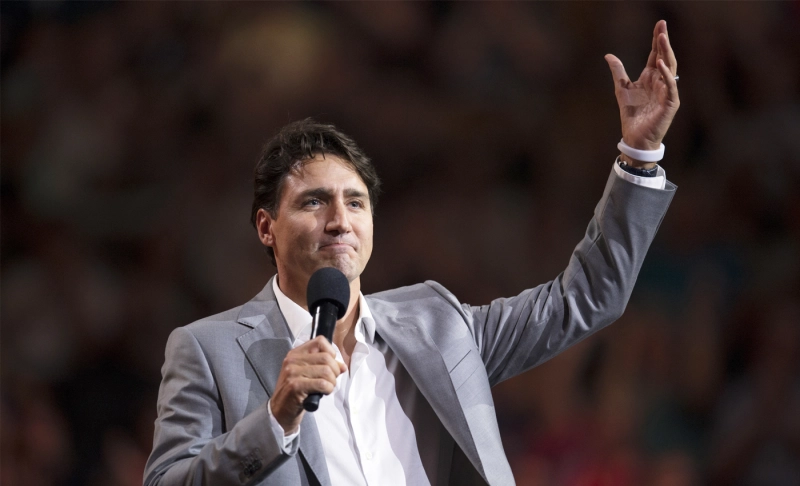February 16 2022
False: Canadian Prime Minister Justin Trudeau declares Martial Law.

The Verdict False
In an attempt to stop the trucker convoy protests, Trudeau invoked the Emergencies Act. The measures do not include calling in the military.
On February 14, Canadian Prime Minister Justin Trudeau invoked a public order Emergencies Act to stop the trucker's protests against vaccine mandates. A Facebook post with over 9.7 Million views called the Act a "near martial law" in Canada. This claim is inaccurate. The New York Times reported that the Prime Minister did not intend on calling in the military and remained "against intervention by the armed forces." The Emergencies Act, a 30-day measure, allows banks to freeze personal and business accounts and ban public assembly. The truckers convoy, famously known as the "Freedom Convoy," began in Ottawa at the end of January. The demonstration followed a vaccine mandate set by the Prime Minister that required all Canadian cross-border truckers to be fully vaccinated against COVID-19. It is reported that some demonstrators echoed Islamophobic and anti-Semitic views. The Canadian Anti-Hate Network, a non-profit organization, called the movement "a vehicle for the far right." Meanwhile, Jagmeet Singh, leader of The New Democratic Party, blamed foreign interference for supporting an "anti-government protest" that aims to "overthrow the government." The Emergencies Act aims to block funding to the demonstrators and ban the public assembly of protestors. Trudeau said the "time-limited" measures will help to "address the blockades and occupations." In addition, he emphasized that the Act will not include deploying the military. According to the Canadian Justice Department, the Emergencies Act introduced in 1988 has four types of emergencies: a public welfare emergency, a public order emergency, an international emergency, and a war emergency. In 1970, the then Prime Minister and Trudeau's father, Pierre Trudeau, invoked the War Emergency Act, including martial law, to quell Quebec separatists.


